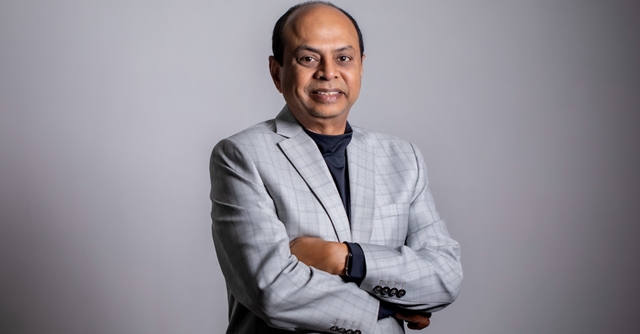
New Delhi, June 17 -- Last year in December, Pegasystems' India Managing Director Deepak Visweswaraiah participated in a 'Ask me Anything' (AMA) session on social networking website Reddit. In the session which lasted for over an hour, Visweswaraiah was bombarded with questions about the future of work, employment, and the evolution of tech hiring, especially in India.
"I went there intending to spend about an hour with the audience, answering any questions they had. But the session turned out to be incredibly intense. Some attendees were curious about which domains within Artificial Intelligence (AI) are worth focusing on. Interestingly, even experienced professionals were asking thoughtful questions about whether they should pivot their careers, how to upskill, and what new areas they should explore," he said.
The major themes were how to future-proof themselves, which skills to build, and how to stay relevant in a rapidly evolving landscape. These questions reflect the apprehension of job seekers in today's tech world, which is rapidly changing with the advent of AI and generative AI. This anxiety is not unfounded. A World Economic Forum survey found that 41% of employers are expected to reduce their workforce in the next five years due to AI advancements. Tech giant Microsoft, for instance, laid off 3% (6,000) of its global workforce, as a direct impact of increased focus on AI investments.
To this, Visweswaraiah said that while anxiety is natural, the best way to navigate is to keep a learning mindset.
"Over the years, we've seen many shifts in technology-from the advent of processors to the rise of cloud computing, and the evolution of programming languages. AI, too, has existed for a long time, but the kind of capabilities available now have transformed how it's applied and understood. And more waves are coming-quantum computing, for example, could drastically change the landscape once it matures."
Internally within Pegasystems, employees are actively encouraged to understand and work with generative AI and large language models (LLMs). It goes beyond just training the workforce in technical know-how to include AI governance, ensuring audit trails, transparency, ethical alignment, and accountability.
"We proactively trained our teams well in advance. Our IT organisation deployed internal instances of LLMs, so employees could experiment and explore ideas before applying them in production environments. We've also encouraged an AI-first mindset, urging all employees to leverage these tools to become more efficient and forward-thinking," explained Visweswaraiah.
India has served as Pegasystems' largest research and development (R&D) centre since 2008. Of the 5,500 employees of the company, over 2,000 are based in India, working out of its Hyderabad and Bengaluru offices.
"While we've always invested in AI talent, thanks to our long-standing AI Center of Excellence in Bengaluru, we've expanded our hiring to include more data scientists and AI/ML (Machine Learning) engineers, especially in our Hyderabad center, which has become a major hub for us," he added. More than 50% of all Pegasystems' developers worldwide are based in India.
AI investments
According to Visweswaraiah, the last couple of years has had organisations experience a shift; enterprises that once operated with an "automation-first" mindset are now embracing an "intelligence-first" approach.
AI is embedded into Pegasystems' core platform to enable real-time decision-making, adaptive analytics, and tools like GenAI Blueprint. GenAI Blueprint is a no-code, AI-powered tool from the company that allows clients to build their applications quickly. Since its launch, customers have created 100,000 'blueprints' using this tool.
"This has helped our customers in building personalised applications in record time. From boosting policy renewals by 30% for an APAC insurer to rolling out enterprise-wide AI in fraud detection and retail customer service, we're seeing large-scale, measurable impact across industries. GenAI Blueprint alone has helped create over 100,000 blueprints, revolutionising how clients move from idea to application in minutes," he said.
In the trailing 12 months ending March 31, 2025, the company reported $1.64 billion in revenue, a 14.3% year-over-year increase. This momentum is largely fueled by rising demand for subscription and cloud services, with AI-driven tools like Pega GenAI Blueprint and real-time decision-making capabilities.
While the company has not shared revenue contributions by AI, Visweswaraiah said, "We don't sell AI as a standalone feature. It's integrated across our platform, reflected in our licensing, product experience, and go-to-market model. For example, Pega GenAI Blueprint is available as a Software-as-a-Service (SaaS) tool on pega.com and is part of our broader value proposition. The results are showing-not just in customer success stories, but in our financial performance over the last few quarters."
Pegasystems in India
Pegasystems operates as a global capability center (GCC) in India and also serves other GCCs of its major clients here. These GCC clients have become key to Pegasystems' ecosystem.
"We proactively established deep, time zone-aligned relationships with these GCCs, creating a powerful support and feedback loop. Today, we have 50-60 strong partnerships with client GCCs across India. We regularly engage with them-whether by hosting them at our offices, visiting theirs, or running enablement sessions to showcase the latest features, gather insights, and ensure alignment with their roadmaps," said Visweswaraiah. Pegasystems India works with clients like Verizon, Wells Fargo, Bank of America, and JPMorgan Chase, all of whom have a significant presence in India.
Published by HT Digital Content Services with permission from TechCircle.
